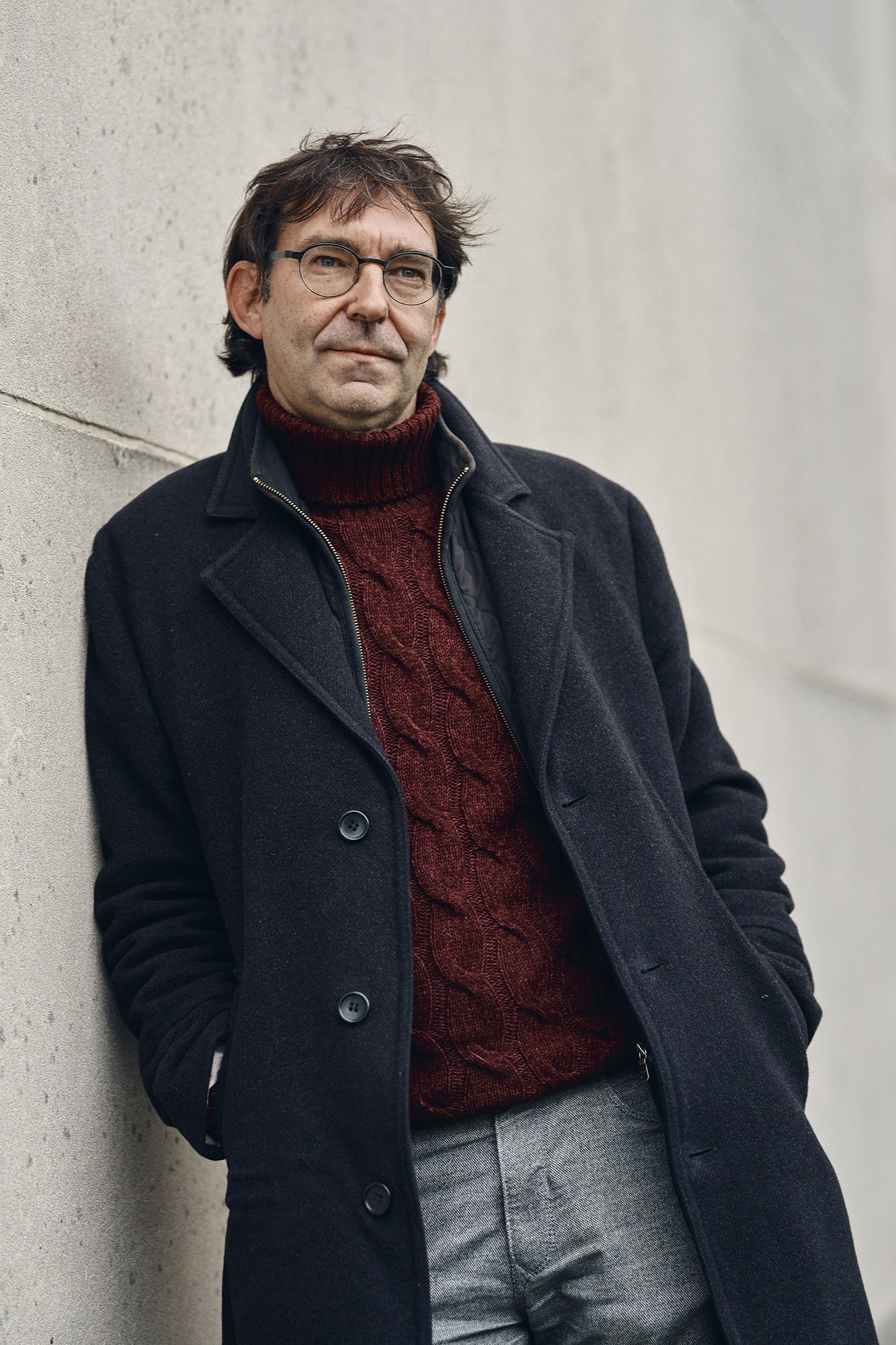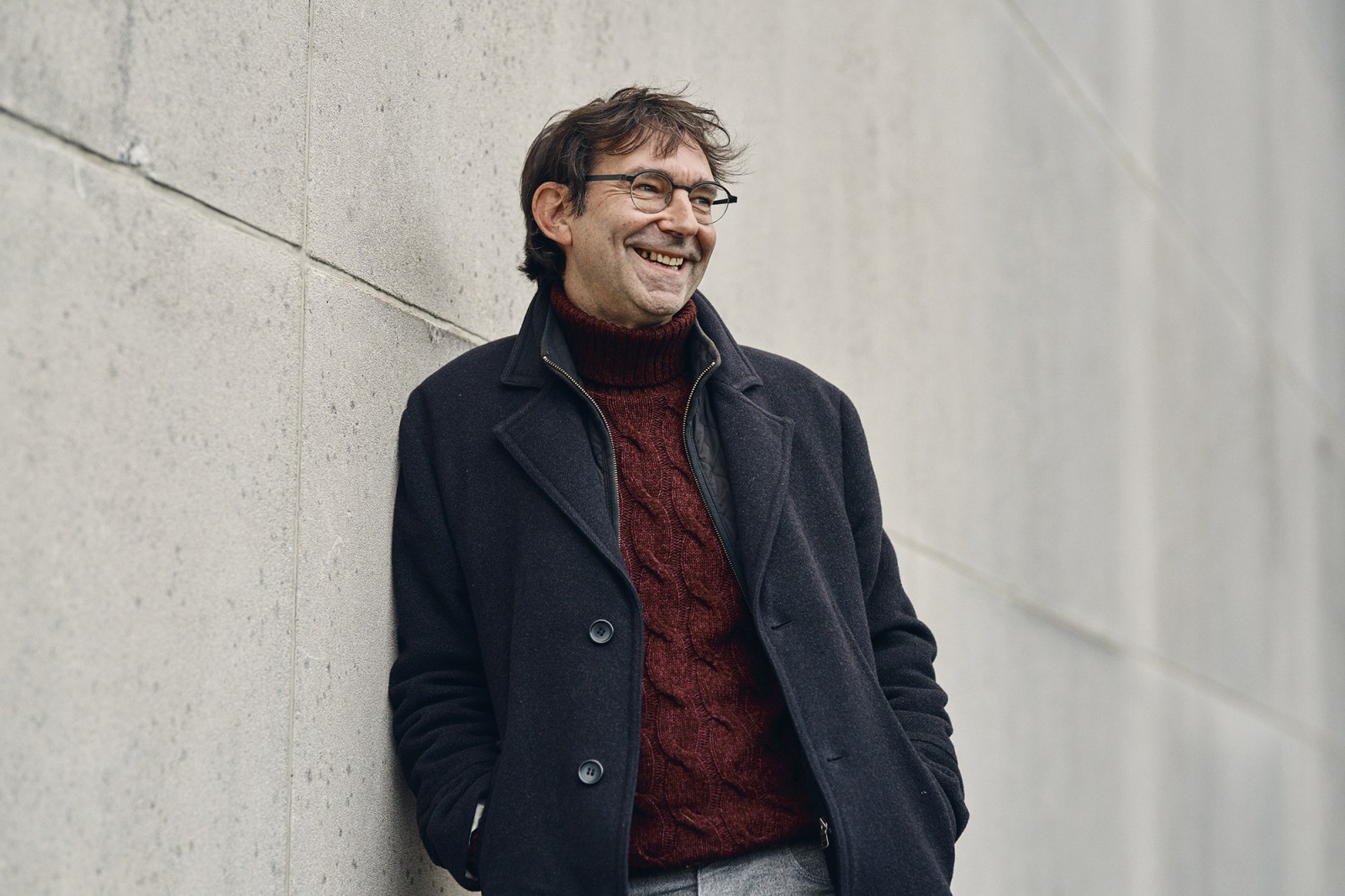We are nearing the end of this strange and special year, 2020. Time to reflect on the status quo. 20 people with links to Ghent University were selected at random. They tell us what 2020 meant to them, what they will carry over to next year and above all: what they hope for in 2021.
Professor Patrick Segers studied at Ghent University, and returned to Ghent after a short spell in the Netherlands. He is now a professor in the Faculty of Engineering and Architecture where, in addition to his research and teaching, he chairs the Study Programme Committee for biomedical engineering technology, a direction which he believes is ideal for students who are hesitating between medicine or civil engineering.
How was 2020 for you?
“I found it a tough and challenging year, like so many others. As the chairman of the Study Programme Committee for biomedical engineering technology, I have the feeling that I was forever extinguishing fires. I became more of a crisis manager. Everybody did their very best, because we had no choice but to keep going, but it was a strain.”

What did you accomplish this year?
“I am proud that the ‘biomedical engineering technology’ programme is becoming increasingly popular. We have been working on it for a long time, and we are now starting to reap the rewards. Female students in particular struggle to find their way to the civil engineering programme. By combining it with the biomedical element we are managing to attract more female students. That is excellent news.”
What have you learned this year?
“Sadly, I had no time to do puzzles or learn how to knit, if that’s what you mean (laughs). I have actually got to know my own neighbourhood much better, and I now go walking more regularly. In the past, I never walked more than five kilometres. These days, I don’t even bother for such a short distance. I also discovered a new way of travelling, which is much more low key and closer to home. I set off on my bike for a holiday in my own country and discovered Bruges, Veurne, Kortrijk, … together with my family. That’s certainly something I’m keen to repeat.”
Last year was like no other, but it was also filled with warmth. We supported each other and shared in each other’s ups and downs. Now this is your chance to thank everyone who was there for you. Not in the usual way, but with a virtual projection of your best wishes onto the Book Tower.
How was it to work from home?
“I’m one of those people who can’t complain. I live in the countryside in the peaceful village of Lede, I have a garden, my children are older and do their own thing. The only thing I find more difficult is that the line between work and leisure has completely disappeared since I’ve been working from home.”
What will you carry over to 2021?
“I am pleased that we’ve invested efforts in online education this year and I hope that these efforts will continue in the future. I believe this it can be a permanent asset in our education. Not alone, as it is now, but as one component. We can learn a lot from it.”

Who do you most admire at Ghent University?
“That’s one I don’t need to think twice about: our director of studies, Hennie De Schepper. She teaches maths to very many students and has done some marvellous work in our faculty. She successfully managed all decisions, stricter rules and changes under particularly different circumstances. I would like to thank her for that. Our logistics services did a wonderful job as well. Thanks to them, all those people were suddenly able to work from home and a certain dynamic remained among the Ghent University team as a whole.”
Imagine you could return to 1 January 2020. What would you do?
“(laughs) Goodness, that’s a difficult question, because then you know what’s to come. Joking apart: I think I would warn my uncle. He died of the virus and I would say to him: forget that last pint in the pub. That’s probably where he picked up the virus. It’s a tricky virus.”
What do you hope for in 2021?
“I hope, like everyone else I suppose, that we can return to normality. That I can go abroad again for congresses, have a chat with colleagues in the corridor again and that the students will once again be welcome on the campus. They are the biggest victims, in my opinion. They are being forced to miss out on some the best times of their life. I live near a student who is in his first year of higher education, and he hasn’t met a single person on his course. Imagine the impact. Students are often criticised, certainly in this period, but I think they deserve more respect for their efforts.”
20 people with links to Ghent University were selected at random. They tell us what 2020 meant to them, what they will carry over to next year and above all: what they hope for in 2021.
Read also
Ghent University Alumnus of the Year Marianne De Backer: “When someone tells you you’re too ambitious, you’re on the right track”
Marianne De Backer is a heavyweight in the world of biotechnology. Today she is CEO of Vir Biotechnology, a biotech company headquartered in Silicon Valley. She is a champion of women in leadership positions in this still male-dominated industry.
Connected to Ghent University for life: why our alumni are so important to us
The role of alumni within any university is not to be underestimated. “Our contact with ex-students is immensely important for so many reasons: research, education, reputation, talent management and more besides…. ,” maintains Emeritus Professor Kristiaan Versluys.
Serhat goes from Ghent University to Harvard: "I want to bring healthcare to people who are excluded from it"
Serhat Yildirim (26) just completed his final exams in medicine after which he will start at the prestigious Harvard University. He was admitted for the two-year master's degree in Global Health Delivery.
First Ghent University, then the world
Ghent university has a global network. Through international research projects, collaboration agreements with other universities, exchange programmes, ... And also through its many alumni, who fly off in all directions after their studies.



